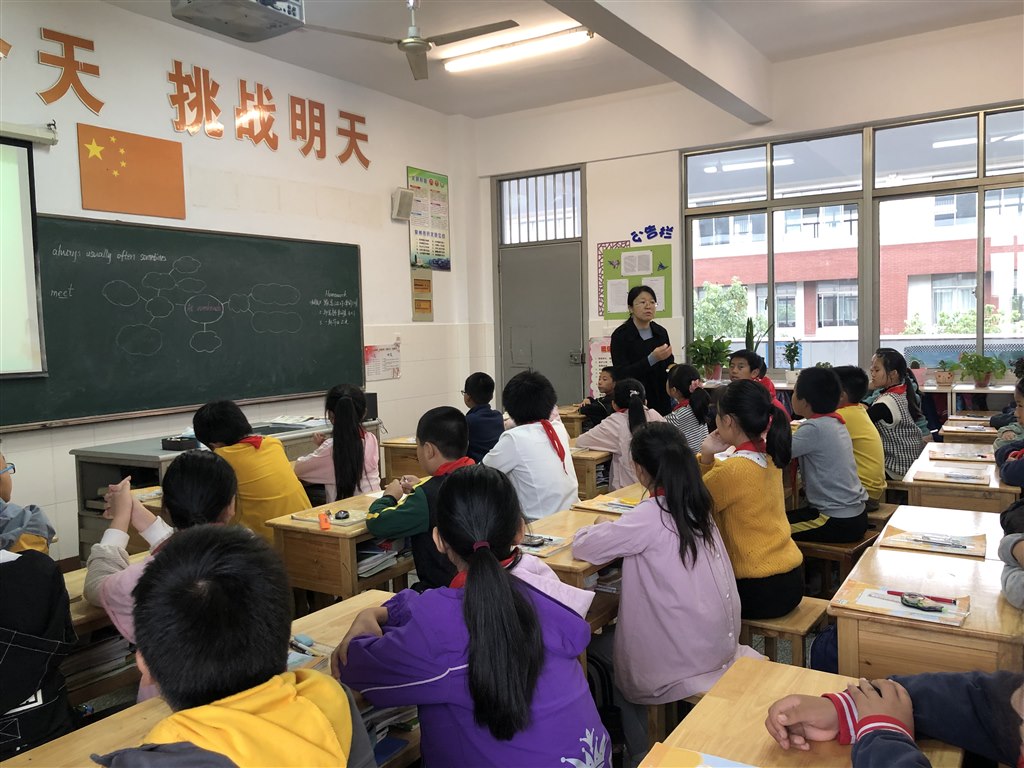Unit7 At weekends(Story time)
Period1
一、教学目标:
知识目标:
1.能听懂、会读、会说单词、词组at weekends/chat on the Internet/go to the cinema/fly a kite/have a picnic/visit grandparents
2.听懂理解adverbs of frequency(always/usually/often/sometimes)间差异。
能力目标:
1. 能听懂、会读、会说句型What do you do at weekends?
I always/usually/often/sometimes…at weekends.
What does he/she do at weekends?
He/She always/usually/often/sometimes…at weekends.
2.能正确的理解并朗读课文,在教师的引导和帮助下尝试复述课文内容。
情感目标:让学生认识到周末要过得有意义。
二、教学重点:
1.能理解和正确朗读课文,达到语音语调正确并在教师的引导和帮助下尝试复述课文内容。
2.听懂理解adverbs of frequency(always/usually/often/sometimes)间差异
3.能听懂、会说、会读、会运用句型What do you do at weekends?
I always/usually/often/sometimes…at weekends.
What does he/she do at weekends?
He/She always/usually/often/sometimes…at weekends.
三、教学难点:
1.初步运用本课所学的词汇和句型谈论自己或他人周末的生活
2.能听懂、会说、会读、会运用句型What do you do at weekends?
I always/usually/often/sometimes…at weekends.
What does he/she do at weekends?
He/She always/usually/often/sometimes…at weekends.
四、课前准备:
图片,PPT等
五、教学过程:
Step1.Pre-reading
1. Greeting
Hello,class.I’m Miss Lu. Nice to meet you.(借班上课)
2. 揭题
T:Do you like games? 玩Magic eyes
T:Today, we’re going to learn Unit7 At weekends.(揭题)
3.Let’s talk.
(1)T: I like weekends, because I don’t work at weekends.I can do a lot of things. Can you guess what do I do at weekends. 在此过程中教visit my parents
T: Do you know how often do I do these things?
教:always/usually/often/sometimes
追问:What do you think of my weekends?
可以板书:nice/wonderful/colourful/interesting/happy...
(2)T:So what do you do at weekends? 引出what do you do at weekends?(追问)
师生问答1~2组,让他们work in pairs, 最后展示1~2组。提前告诉孩子们可以选择一个频率副词来回答。
Step2. While -reading
1.watch and choose
T: We are talking about our weekends, Look,some students are talking about their weekends,too.
Whose weekends are they talking about?
2. 课文细节处理,第一段
(1) Look and say 大概说一说(3幅图)
(2)Read and answer
T:What else do they do at weekends?
出示Learning tip2:
① Read the passage(读文章)
② Underline the key phrases.(划出短语)
先示范划一个关键短语,T:You can do like this. 板书并教授词组visit grandparents,
(3) Listen and answer 解决how often 的问题
T:How often do they do these things?
3.Read and retell
T:If you are Su Hai ,can you introduce your weekends?(第一人称复述)
S:Hello, I'm Su Hai. I…
T:Can you be Mike and introduce Su Hai’s weekends?(第三人称复述)
S: Hello, I'm Mike.Su Hai always…
在此过程中,提醒孩子们用动词第三人称单数并板书。
追问:What do you think of the twins’ weekends?
4.discuss and draw
What about Mike’s and Helen’s weekends? Read the passage , discuss with your partners then draw a mind map and retell their weekends.(可以用第一人称或第三人称复述)
5.Listen and repeat 跟读课文
T:listen and repeat,please pay attention to the pronunciation and intonation.
三种方法:1 read together 2.read in roles 3.choose one child to retell
6.read and act(T: choose one way to read)
Step3. Post-reading
1. Let’ think
T: what do you know from the passage? 看学生不会说,教师可以提示:You can say it in Chinese.
T:What do you think of their weekends?
2.Let’s enjoy
T: yes, different people in different countries have different weekends, look...
3. 情感拓展
T:our weekends are so colourful, and we also need meaningful weekends.
3. 机动环节Writing
My _______ weekends
Step4. Homework
1.Read the story time.
2.Choose your favourite way,retell Story time. (选择你喜欢的方式,复述课文)
3.Design a colourful and meaningful weekend.(设计一个丰富而又有意义的周末。)
教学反思:
1.课堂用语不够简洁,导致学生在理解的过程中会有问题。
2.学生对文本的熟悉程度不够,所以课堂效果不佳,在以后课堂的把握上更需要对于教案教材的熟悉以及大量的课前准备工作。

 苏公网安备 32041202001123号
苏公网安备 32041202001123号 